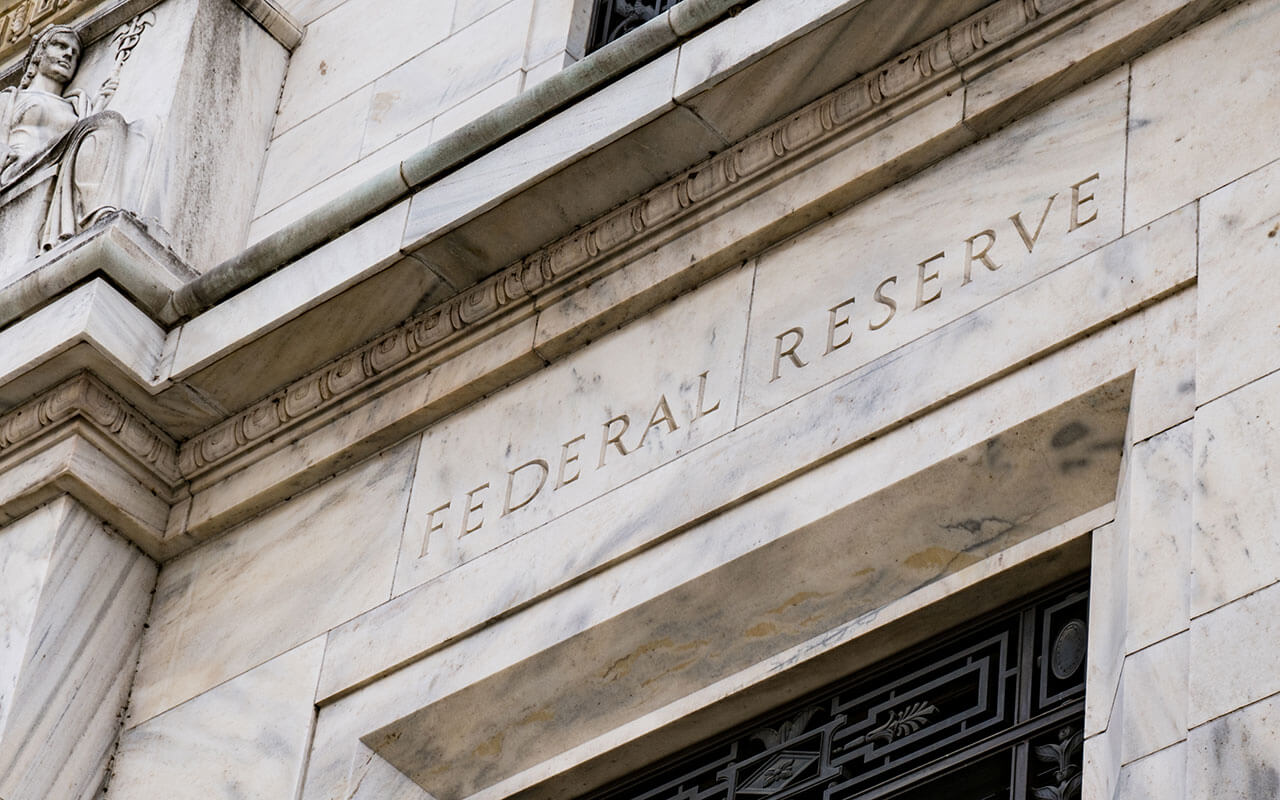Federal Reserve Flags Growing Risks to U.S. Economy in New Stability Report
27.04.2025 16:11 1 min. read Alexander Stefanov
The Federal Reserve’s newest Financial Stability Report paints a more anxious picture of the U.S. economy, highlighting rising global trade tensions, growing policy uncertainty, and worries over the nation’s debt levels as key threats to financial stability.
This marks the Fed’s first major risk assessment since Donald Trump’s return to the presidency, and the tone has clearly shifted.
According to the survey, 73% of market participants now rank global trade disputes as their top concern — more than double the number from last November’s report.
Policy unpredictability also emerged as a major fear, with half of respondents worried about shifting economic strategies under the new administration, signaling a sharp rise in anxiety compared to last year.
Concerns aren’t limited to trade and governance. The Fed noted a spike in worries about U.S. Treasury market volatility, with 27% of participants citing it as a serious issue, up from 17% previously.
Analysts point to tightening liquidity and evolving investor behavior as reasons behind the growing unease in a market typically seen as a global safe haven.
Another red flag raised by the report is the risk of foreign investors pulling back from U.S. assets.
A large-scale retreat could hit the value of the dollar, push up interest rates, and send shockwaves through global financial markets — adding yet another layer of uncertainty to an already fragile environment.
-
1
Tom Lee Warns Fed Could Trigger Market Turmoil With Delayed Pivot
22.06.2025 19:00 3 min. read -
2
Fed’s New Projections Hint at a Slower Easing Cycle Through 2026
19.06.2025 15:00 2 min. read -
3
Trump Targets Fed Over Missed Rate Cut Opportunity
20.06.2025 9:00 1 min. read -
4
UK Inflation Stalls at 3.4%, Spotlight Shifts to BoE’s August Meeting
19.06.2025 9:00 2 min. read -
5
Fed Holds Fire on Rates, Signals Cuts Could Arrive if Jobs Falter
18.06.2025 21:30 1 min. read
Key U.S. Economic Events to Watch Next Week
After a week of record-setting gains in U.S. markets, investors are shifting focus to a quieter yet crucial stretch of macroeconomic developments.
Robert Kiyosaki Predicts When The Price of Silver Will Explode
Robert Kiyosaki, author of Rich Dad Poor Dad, has issued a bold prediction on silver, calling it the “best asymmetric buy” currently available.
U.S. PCE Inflation Rises for First Time Since February, Fed Rate Cut Likely Delayed
Fresh data on Personal Consumption Expenditures (PCE) — the Federal Reserve’s preferred inflation gauge — shows inflation ticked higher in May, potentially delaying the long-awaited Fed rate cut into September or later.
Trump Targets Powell as Fed Holds Rates: Who Could Replace Him?
Federal Reserve Chair Jerome Powell is once again under fire, this time facing renewed criticism from Donald Trump over the Fed’s decision to hold interest rates steady in June.
-
1
Tom Lee Warns Fed Could Trigger Market Turmoil With Delayed Pivot
22.06.2025 19:00 3 min. read -
2
Fed’s New Projections Hint at a Slower Easing Cycle Through 2026
19.06.2025 15:00 2 min. read -
3
Trump Targets Fed Over Missed Rate Cut Opportunity
20.06.2025 9:00 1 min. read -
4
UK Inflation Stalls at 3.4%, Spotlight Shifts to BoE’s August Meeting
19.06.2025 9:00 2 min. read -
5
Fed Holds Fire on Rates, Signals Cuts Could Arrive if Jobs Falter
18.06.2025 21:30 1 min. read


